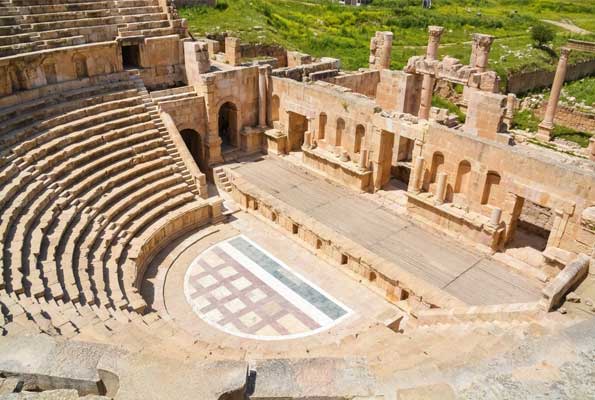Before the COVID-19 pandemic, Jordan was grappling with high unemployment rates, limited natural resources, regional instability, and a large influx of refugees. These factors have now been placing significant strains on the Arab nation’s economy.
COVID has further exacerbated these challenges. The lockdowns and travel restrictions substantially impacted the nation’s tourism, trade, and services, apart from straining the public finances, as the government had to support healthcare systems, implement social safety nets, and mitigate the economic impact of the virus outbreak. All these have led to an increase in budget deficits and public debt levels.
The Jordanian government has undertaken various reforms to address these economic challenges and sought financial assistance from international organizations and donor countries. These measures have aimed to stimulate economic growth, attract investments, improve the business environment, and diversify the economy.
These reform measures include privatization drives, the cultivation of medicinal marijuana, and tourism initiatives. As a result, the tourism industry in Jordan is thriving. Compared to the first quarter of 2019, tourism grew by 90.7% in the first few months of 2023.
In addition to Petra, Wadi Rum, Karak Castle, Aqaba, and the Dead Sea, Jordan is a Hashemite country that welcomes Westerners. The Arab nation has other booming economic sectors like energy and technology as well.
With a population of 11 million, Jordan is a crucial regional ally of the United States, has good relations with Israel, and exerts a moderating force in the Arab world. However, the 760,000 officially registered Palestinian, Syrian, and Iraqi refugees have become a strain on the country’s economy which has drawbacks like scant natural resources and a fragile private sector. COVID and Ukraine have only made things worse.
The United States has given Jordan more aid than any other nation in the past 70 years, totalling more than USD 23.8 billion and exceeding USD 2.6 billion in 2020 alone. However, long-term growth can never be the result of foreign aid.
Jordan pays 70% of its income on salaries, pensions, and other benefits, therefore leaving very little for public works or new projects.
Jordan’s ranking in The Heritage Foundation’s Economic Index decreased by 7.2 points between 2020 and 2023. Jordan has benefited from a generally open trade and investment system, but the absence of regulatory reform has slowed economic progress.
Religious tourism: An advantage area?
Despite being predominately Muslim, the nation is home to some of the world’s oldest Christian communities and important Christian religious sites. For example, John the Baptist baptized Jesus Christ in the Jordan River. The website “Bethany Beyond the Jordan” has roughly 200,000 visits annually.
A USD 300 million project was started in December 2022 to increase the number of visitors to this significant holy monument.
The project will be financed by nine faith-based organizations, which will mobilize private funding to construct 12 new churches and welcome areas. In addition, the Jordanian Baptist Convention will collaborate with the Baptist World Alliance, a global network of Baptist churches, to establish a Baptist outpost. The Anglican, Greek Orthodox, Catholic, Evangelical Lutheran, and other faiths also plan new churches, guest houses, and apartments.
The 30,000-square-meter Catholic Church will house the largest Middle Eastern church complex. The Catholic Latin patriarch of Jerusalem referred to the location as a “place of unity.”
Jordan anticipates that the improved religious site will bring in more than a million tourists annually and increase tourism revenue.
Eyes are on the ICT and energy sectors as well
“The Information Communications and Technology (ICT) sector in Jordan is one of the fastest growing sectors in Jordan’s economy, accounting for 3.8% of [gross domestic product] with total annual revenue exceeding [USD 2.3 billion],” according to the U.S. International Trade Administration.
By supporting coding boot camps, hackathons, and entrepreneurial challenges to improve the ICT abilities of Jordanian youth, Jordanian Crown Prince Hussein bin Abdullah II hopes to establish Jordan as a regional leader in the technology sector.
Another significant sector experiencing expansion is energy. The Basra-Aqaba oil pipeline project, a partnership between the governments of Jordan and Iraq to build a new oil pipeline between the cities of Basra in southern Iraq and Aqaba on the Red Sea, seeks to increase Jordan’s energy security and give Iraq a unique, secure route to export its oil.
The two pipelines, which are almost 1,050 miles long, may produce 2 million to 3 million barrels daily. The estimated construction cost of the project is USD 18 billion.
The annual transit fees from the pipelines could bring Jordan between USD 500 million and USD 3 billion. In addition, the channel might help Iraq diversify its export routes and link its economy to more secure Arab neighbours.
The pipeline would also lessen the dependency on oil transported via the Strait of Hormuz for Europe and the United States.
Conclusion
Jordan has implemented various reforms and sought financial assistance to stimulate economic growth, attract investments, and diversify the economy.
Ultimately, the country will have to focus on sustainable and long-term solutions to achieve economic prosperity.



